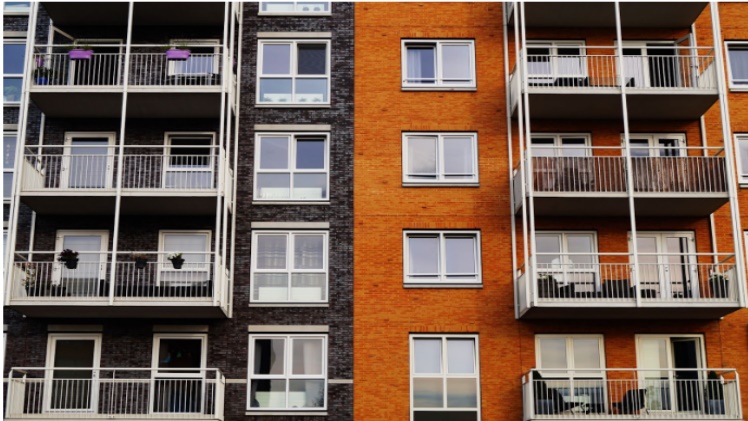Are you weighing the pros and cons of offering short-term rentals versus long-term leases to your tenants? And are you uncertain as to what constitutes a long-term versus a short-term rental, given that the distinctions seem to vary depending on whom you ask? Well, you’re not alone! Surprisingly, there are a lot of investors, especially new ones, that are left confused.
In terms of defining the two, there is no single rule. In fact, there is no real estate law that defines which one is which between these two rental property investments. The most common suggestion, however, is that every lease agreement that has a minimum of a one-year contract is considered long-term, while everything that lasts for less than six months is considered a short-term rental.
While both rental property investments can generate passive real estate income, they each have their own benefits and drawbacks. In this article, we will compare the two in the discussion below, so keep reading.
Understanding Short-Term Rentals
The most common form of a short-term rental is a vacation property, where guests may stay for a few hours to a few months. However, tourists aren’t the only ones who use short-term rentals; business and work travelers do as well.
For instance, professionals in the fields of travel nursing, auditing, and consulting typically work for a company for two to six months at a time in one location before moving on to another. If you’re a business traveler or travel nurse heading to Atlanta for a short-term assignment, you’ll be pleased to know that there are many affordable Atlanta apartments for rent that cater to your needs, whether you’re looking for a fully furnished unit or a no-frills option.
Advantages of Short-Term Rental Investment
1. Greater Rental Property Investment Return
Nightly rates for short-term rentals are typically higher than those for longer stays. Gross rental income can be maximized for investors who own short-term rentals by setting the rent at the going market rate. Depending on the state of the local rental market, a short-term rental could bring in twice as much money each month as a traditional lease.
Take, for instance, a long-term rental property that has a monthly rate of $1500. If you’ll divide the price for 30 nights, basically, the long-term rental property is charging only $50 a night. This amount is rarely seen in short-term rentals, and if it is, it is definitely on the low end. Data from techvestor.com shows that short-term rental property investment banks an average of $70 to $80 per night in decent cities.
2. Allows Flexibility and Opportunities for Personal Use
The benefit of renting out your property on a short-term basis is that you can set the rental dates and duration yourself. Regular breaks of 2-3 hours in between bookings make it simpler for owners of vacation rentals to take time off when they want.
If your circumstances change, you are free to withdraw the listing or even move into your rental property investment. Having your short-term rental for personal use is a major perk; you can easily lend it to a relative or friend that plans to visit or travel. The power is really in your hands.
3. Enables Regular and Easy Maintenance Checks
The shorter the tenant’s stay, the less wear and tear there will be on the property. When a home is rented out for a shorter period of time, the owner has more opportunities to keep tabs on it. At the end of each tenancy, the short-term rental property can be professionally cleaned and examined for any necessary repairs to be made before the next tenant moves in.
You will be able to handle minor repairs, such as replacing broken fixtures, retouching paint, and conducting thorough cleanings between tenants, allowing you to preserve your rental property investment in excellent condition.
4. Tax Deductions
Short-term rentals may qualify you for tax breaks on property expenses. Before counting on substantial tax savings, however, you should investigate the income tax and property tax laws of your state and city to determine which incentives are available in your area.
Disadvantages of Investing in Short-Term Rentals
1. Regular Cleaning and Complimentary Features
Short-term rentals can indeed be harder to take care of than long-term ones, especially if the renter is using the place like a hotel room. They are usually fully furnished and well taken care of.
A short-term rental may also need to have personal items like linens and toiletries on hand at all times. When you have new guests every week, you must dust, vacuum, and clean a lot. There will also be a lot of towels and bed sheets to wash, which could lead to cleaning fees.
2. Off-Season Vacancies
If your rental real estate market goes up and down with the seasons, like many vacation spots, you should think about how many units might be empty during the off-season. Make sure that the rent you get during the busy season will cover the cost of the facility being empty for part of the off-season.
3. Short-Term Rental Income Spikes
For short-term rentals, property owners have to find new renters all the time. And every night that your unit is not rented, you lose money. This is why increased nightly rental costs are so important to the success of short-term rentals: those higher prices will help make up for occasions when the property is empty.
4. Unending Customer Service
A short-term rental property investment means that you’ll have a different tenant every couple of days, weeks, or months. This means that you constantly need to attend to their online queries and needs as they consider your property.
Long-Term Rental Property Investment: What Does It Entail
Any lease agreement that is longer than a year is considered a long-term rental. Sometimes, realtors describe it as a lease longer than six months. Regardless, there are some clear advantages to owning a long-term rented property, as well as some drawbacks to think about.
Advantages of Long-Term Rental Investment

1. Continuous and Consistent Income Stream
Monthly rental income is guaranteed for a lengthy period of time with a long-term rental property investment. You’ll have a regular source of revenue from the rent that is completely paid at the start of every month. There is no need to fret over a lack of business throughout the week or a slow season.
2. Cheaper Maintenance of Rental Property Investment
Long-term tenants are expected to handle chores like cleaning, yard work, and utility payments independently. Tenants are more careful with a place they plan to call home for an extended period of time than they would be with a hotel room.
3. Signed Lease Agreements
Talks about repairs and maintenance are easily managed thanks to lease agreements both parties signed beforehand. With long-term rental property investments, the line about who should be liable for damages and repairs is clearer.
Disadvantages of Investing in Long-Term Rentals
1. Tedious Tenant-Screening Process
A bad tenant is something that you may be able to put up with for one week, but not for an entire year. It takes time and effort to find reliable, long-term tenants. Also, since you’ll be depending on your long-term tenants to pay on time every month, checking their credit and verifying their income is essential.
2. Giving Up Partial Control of the Rental Property Investment
After a guest checks out of a short-term rental, you have complete access to the property and can perform any necessary maintenance or cleaning. When you have long-term tenants in your apartment, you cannot just barge into their apartment. You surrender this control and are at their mercy regarding the upkeep of your property.
Conclusion
There are benefits to both renting out properties for short and long periods of time, and the best option for one lender may be completely inappropriate for another. At the end of the day, both long and short-term rental property investments are great sources of passive real estate income.




